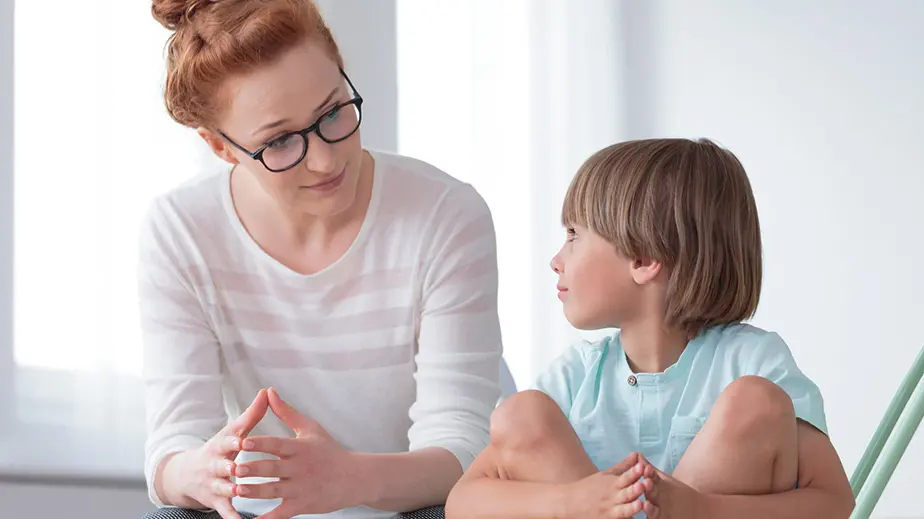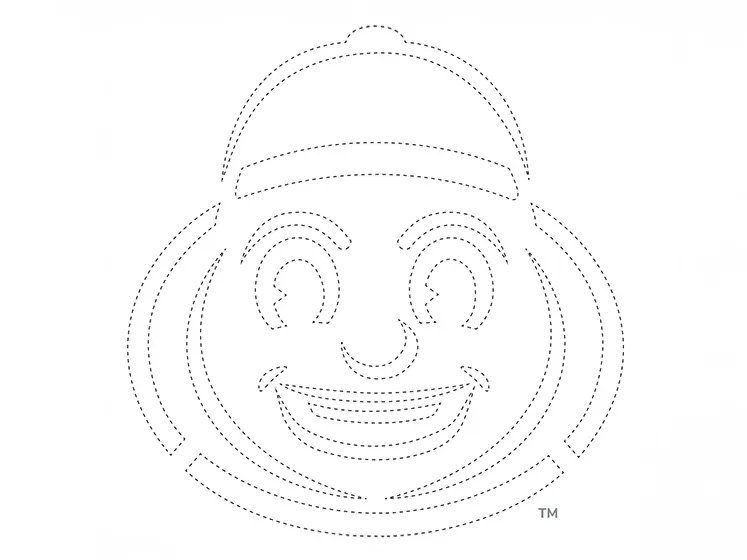Seven ways to help children and teens cope with stress
Going back to school can be a stressful time for children and teenagers. Ohio State’s chief wellness officer has advice for how to help young people manage big feelings that sometimes develop into anxiety and depression.

(Getty Images)
Fear, worry, and sadness are normal emotions that affect us all, and it’s not unusual for a child or teen to experience some of these feelings at times of change, such as the beginning of the school year. Heading back to the classroom can also intensify these emotions for some children and teens who already have issues coping with chronic stress, anxiety and depression.
Parents are in a great position to equip children and teens with skills can help prevent problems. Here are eight ways to help your son or daughter. If these tactics don’t seem to be working, turn to your child’s healthcare provider or a therapist — I’ve included information about taking those steps, too.
Seven strategies
Rehearse situations
Practice school situations in ways that make them less stressful. Visit areas your child might be worried about, such as the cafeteria and playground, and identify “safe” places. You can role-play stressful situations at home with your child (“Let’s act it out. You be you, and I’ll be a girl eating lunch. Try to sit by me.”) or rehearse routines so that they feel natural.
Take baby steps
Rather than avoiding activities and things that spur fears, it’s best to approach them. Don’t try to shield your child from every perceived danger. Instead, help them approach fears by exposing your child to them slowly.
Educate your team
Brief your child’s teachers, caregivers and friends’ parents about your child’s depression or anxiety. Knowing what they might encounter will help them understand and not misinterpret your child’s behavior. One parent created a one-page handout called “Social Anxiety” for her son’s teachers, principal and camp counselors, who appreciated the tips.
Get moving
Findings from studies have shown that keeping your child or teen engaged in regular physical activity can help alleviate stress, anxiety and depression.
Read a story
Young children appreciate stories about someone else going through a similar situation that shows them what to do. You can make one up and let your child draw the illustrations, or visit your library for books like Wemberly Worried by Kevin Henkes.
Enlist friends
Children can provide great emotional support for each other. If your child has been separated from school friends during the summer, try to get together with one or two of them before school starts to rebuild friendships.
Empower choice
Unfortunately, right at the time when they most need help, depressed or anxious children may act out, refuse to participate, have emotional outbursts or act irritable, and that can lead to problems at school. Don’t talk about the behavior in terms of “bad” behavior—this will only make them feel worse. Instead, ask the child how he felt during the behavior, and how he feels about it now. Then, help him decide what he would like to do next time. Above all, don’t take it personally: Your child’s behavior is not his or your fault. Patience and talking with your child or teen about how they feel are the best gifts that you can give a depressed or anxious child.
Signs of anxiety in children and teens
- Irritability and restlessness, especially in younger children
- Behavior regression (going back to a time when the child felt more comfortable) or aggression
- Difficulty sleeping
- Difficulty staying focused
- Stomach aches, especially in school-age children
- Headaches, especially in teenagers
- Nail-biting or finger tapping
- Not wanting to go to school
Signs of depression in children and teens
- Irritability, especially in younger children
- Restlessness, especially in younger children
- Acting out
- Anger, especially in teenagers
- Difficulty sleeping, either too little or too much
- Sadness
- Lack of interest in usual activities
- Complaints of stomach aches and headaches (these are common)
- Anxiety and depression often go hand in hand
Cognitive behavioral therapy (CBT) is the gold standard evidence-based treatment for both depression and anxiety, but many parents do not know to ask for a counselor who specifically delivers CBT. In CBT, children and teens are taught that how they think directly affects how they feel and how they behave. With this type of therapy, children and teens learn to turn negative thoughts into positive ones to cope and feel better. Medication is usually reserved for more severe symptoms of depression and anxiety or if CBT is not having positive effects.
Talk to your healthcare provider about evaluating your child if you are concerned that your child may be suffering from anxiety or depression. For more information about cognitive behavioral therapy, see my column about it in the Winter 2017 edition of Ohio State Alumni Magazine. Additionally, the National Institute of Mental Health has great resources for parents regarding child depression and anxiety.



